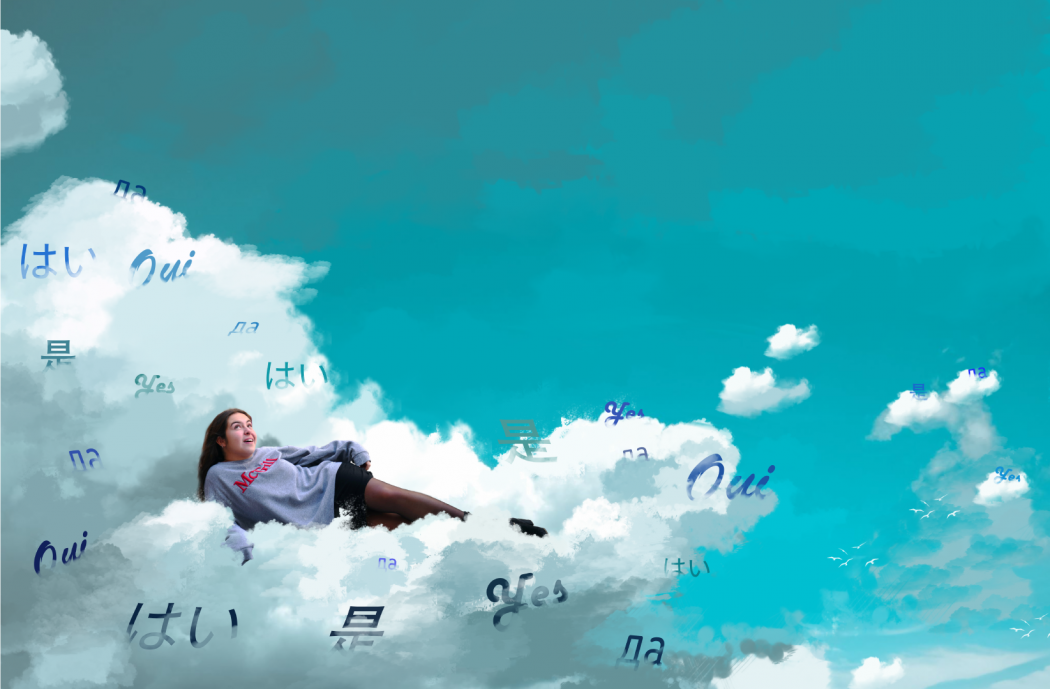Alarm goes off at 8:00 AM – you check your phone and respond to texts. You get out of bed, and get ready for the day. You eat your regular breakfast and head off to class. You get home from class, you cook dinner. You study, and if you’re lucky, you watch some Netflix before heading to bed. This is your routine, and it’s quite comfortable.
It’s all too easy to fall into the cycle of a university student. While I’m not suggesting anyone waves away their academic responsibilities, are these the kind of days you’ll remember years from now? Aren’t these supposed to be the days we’re going to fondly remember when we’ve settled into careers and families, and everything else as the times when we had no real responsibilities?
While discomfort is generally perceived to be negative, there’s a lot to be gained from it. The aforementioned routines keep our lives in a loop, where we do the same things with the same people, and reinforce the same knowledge we had before. This loop is like a comfort zone – we’re comfortable within our routines. We like spending that two hour gap between classes at McLennan, so why go anywhere else? We like getting our coffee from Tim Horton’s, so why try another coffee shop? As we repeat these routines, we become increasingly comfortable with them, and simultaneously less likely to break free of them. The problem is that there is so much going on beyond our routines, and our commitment to staying comfortable causes tunnel vision. We become numb and oblivious to everything beyond our routines, and as a result, we remain stagnant.
While discomfort is generally perceived to be negative, there’s a lot to be gained from it.
This doesn’t have to be the case. Instead of settling for a static lifestyle, we can look to break free from these loops – at least for a moment. By disrupting this cycle, we can emerge from our comfort zones, enjoying new experiences, potentially with new people, where we can learn new things.
Seeking discomfort is the motto for Yes Theory, a group of four former McGill students who have embraced an adventurous lifestyle. Ammar, Thomas, Matt, and Derin met in Montreal and bonded over the common understanding that life is best lived outside of their respective comfort zones. With only $500 between the four of them, they moved into a one bedroom apartment and started tackling their greatest fears. They sought experiences which would make them uncomfortable, and filmed them to inspire others to do the same. For Yes Theory, life can be as fulfilling and authentic as you wish, so long as you’re willing to seek discomfort.
The first time we ever saw a video by Yes Theory, was during an Organizational Behaviour lecture, as our professor explained that she’s still in contact with the four former McGill students. They held up a sign that changed my outlook: “Are you living a life you’d relive?” Seven words arranged into a simple sentence, and yet it struck us. Next thing we knew, we were calling Matt Dojer on a Wednesday afternoon to discuss how ‘seeking discomfort’ has truly altered his life.
Initially, Matt remembers having an enormous amount of doubt. Not about seeking discomfort and the adventures it would bring, but the thoughts of his friends and family that would watch: “A huge part of the discomfort was putting the product out there.” It all started in the summer of 2015: a bootcamp in discomfort. The premise was to “live an entire life in 30 days.” They all saw first-hand how it would have an impact in their lives, allowing them to fast-forward through life rather than coasting day-to-day. Like any big project, it took time and a tremendous amount of content before Yes Theory began to truly gain traction. No one had really noticed the first twenty videos.
To continuously explore into new experiences, your brain actually increases its synapses and connections.
You may be sitting there asking yourself, “How can someone embrace the Yes Theory without sacrificing their long-term goals? How can someone embrace the Yes Theory with limited time and/or money?” Matt provided many examples and suggestions for how a college student can embrace the Yes Theory. The thing about Yes Theory is about making a habit of seeing the fear and then adapting. To continuously explore into new experiences, your brain actually increases its synapses and connections. This can be accomplished by something as simple as watching a Korean movie, you need to constantly look for new things and new experiences and “do it for the sake of doing it. Don’t wait.”
A surprise that Matt didn’t expect to realize from the Yes Theory was that “the smaller things are more meaningful.” Discomforts such as walking to a stranger and introducing yourself or handing out flowers or other simple things that aren’t a daily occurrence can completely alter someone’s day.
When asked how Yes Theory has left an impact on his life, Matt describes himself as more open. He explained that before Yes Theory, he was a plan-oriented person, scheduled, and against any disruption from his life plan. But after discovering the joy of discomfort and taking that ‘leap’ towards his fears, he claims that he’s a much nicer person to be around. Now, three-years since those four boys in Montreal decided to change their lives into something unprecedented from their life plan, I asked Matt how they still find themselves in places of discomfort and excitement. You’d think that going skydiving over the Grand Canyon with Will Smith would make the rest of your days pale in comparison, but Matt explains that “you never really get over it. We still get really nervous, fear never really goes away, you just learn to deal with it.”
Among the many takeaways from our interview with Matt, we understood that this is the time of our lives where it matters most to seek discomfort. If we won’t do it now, then when? With that being said, we challenged ourselves to buy in to the Yes Theory motto, and seek discomfort. There were no conditions beyond that – we didn’t have to go skydiving, we simply needed to embrace a new experience which was uncomfortable to us, and that experience was karaoke.
Les Trois Minots is in a non-assuming building on St. Laurent Boulevard, and has a cult-following of karaoke-fanatics. Let me tell you, this isn’t one of those pretty spots with private rooms – the kind of place where you would go for a friend’s birthday. Rather, this is karaoke in its most raw form – a crammed bar with a nerve wracking stage in its centre, and an audience which surrounds the performer. Neither of us can sing (sing well, at least), so we thought that having a crowd stare at us while we tried to remember the verses in Bennie and The Jets, would be perfect for our challenge. If attempting to sing Someone Like You in front of a bunch of strangers isn’t uncomfortable, I don’t know what is. Our experience was exhilarating, and it took less than 15 minutes.
If all goes as (un)planned, we should be confident in responding to the question on the sign – yes, my life is one I would relive.








